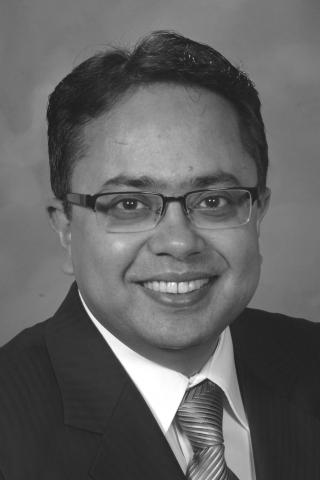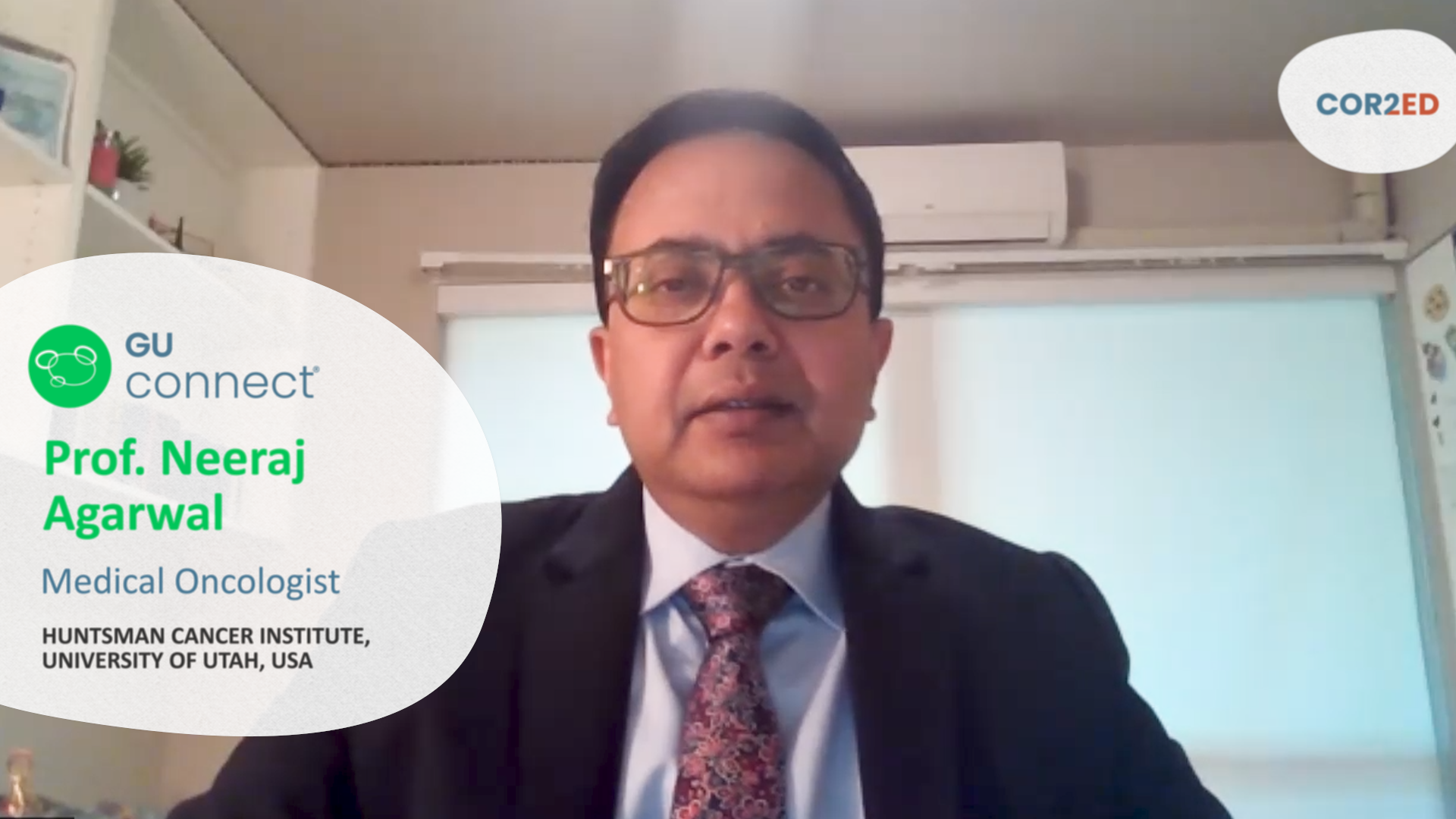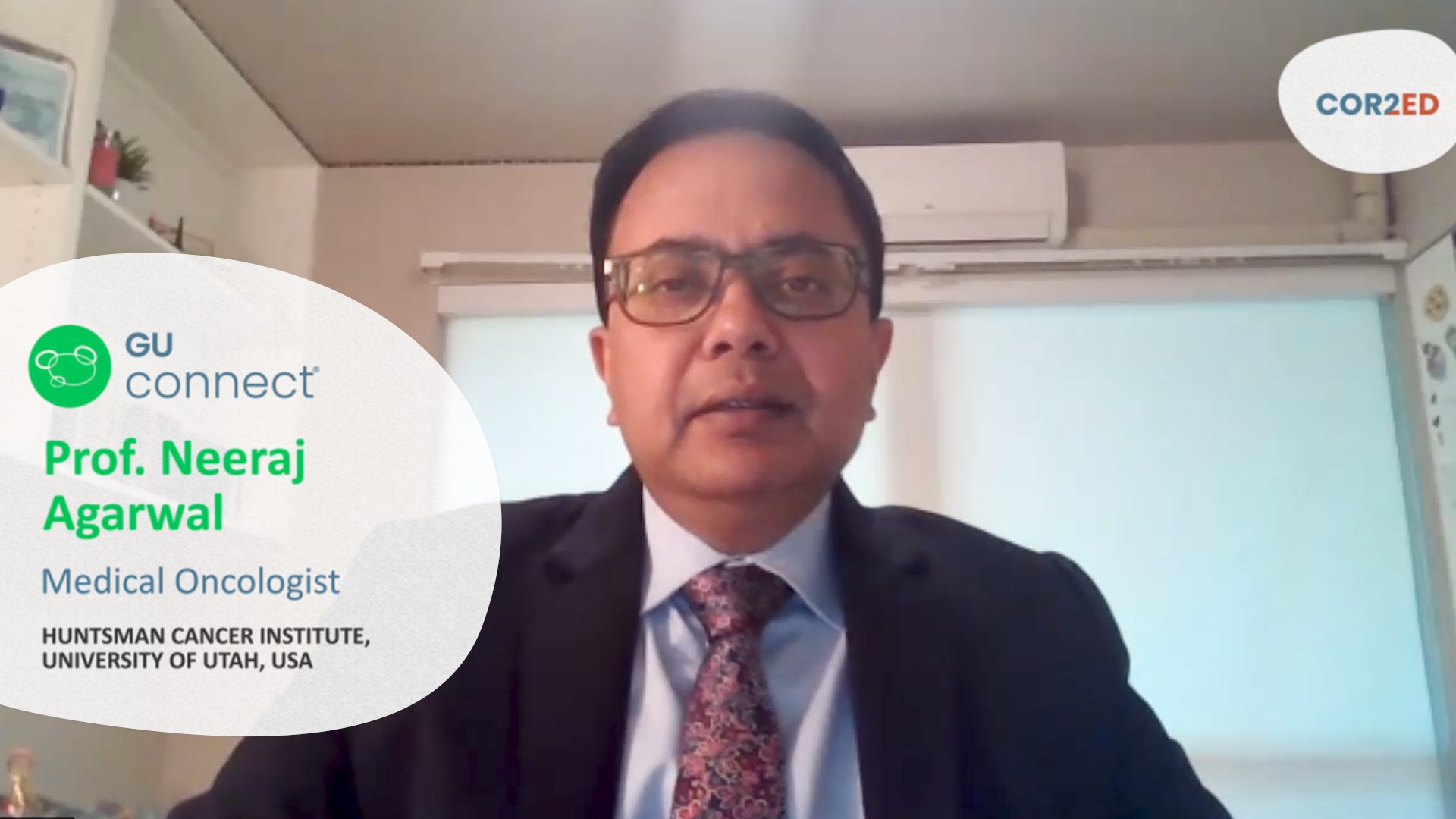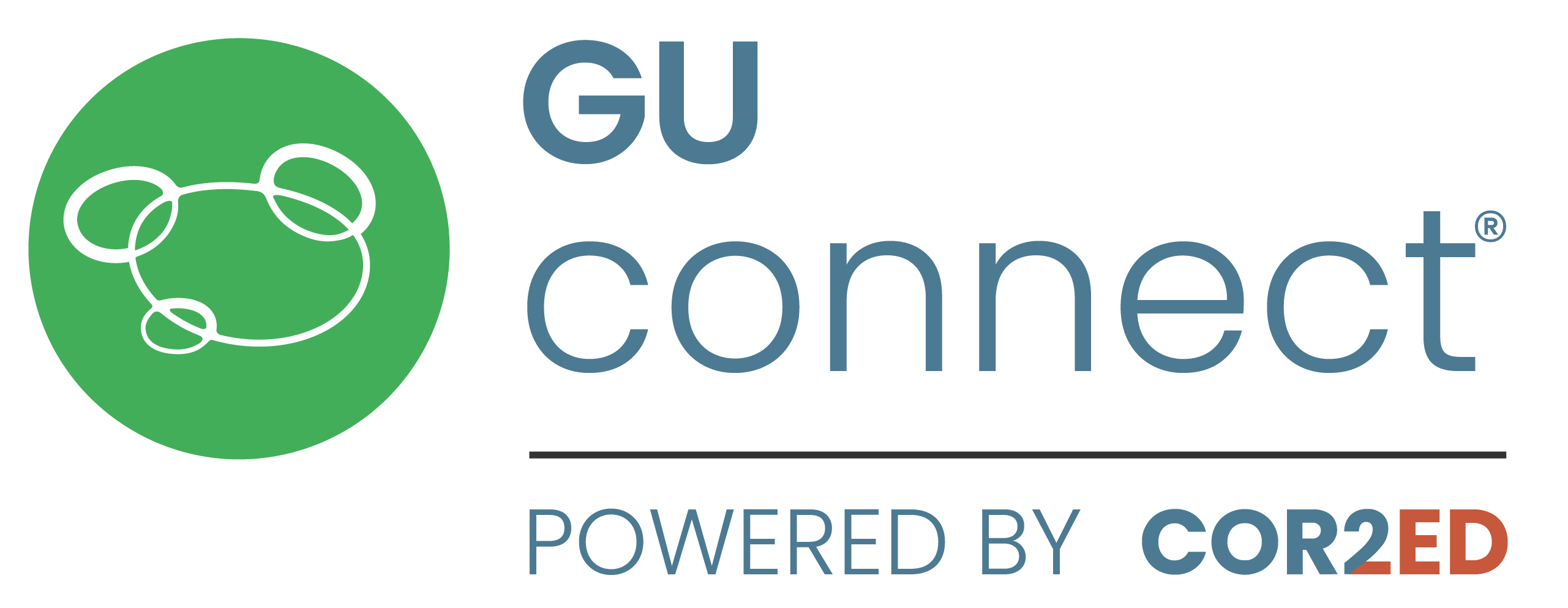GU CONNECT Prostate Cancer Update from ESMO 2022
Hi, My name is Dr. Neeraj Agarwal. I’m a Professor of Medicine and Director of Genitourinary Oncology Program at the Huntsman Cancer Institute, University of Utah in Salt Lake City, in the United States.
Today, I'm going to discuss the abstracts in the prostate cancer presented in the 2022 European Society of Medical Oncology meeting in Paris. And these are the top ranking abstracts, in my view.
I will start with the results of the RADICALS-HD trial. This was a large trial, more than 2000 patients and the researchers, investigators, assessed whether adding hormonal therapy or androgen deprivation therapy to radiation therapy after radical prostatectomy, does it improve metastasis free survival and overall survival?
Metastasis free survival was the primary endpoint. And patients were randomised to no androgen deprivation therapy, 6 months of ADT and 2 years of ADT.
Interestingly, 24 months of ADT was found to be associated with improved metastases free survival compared to 6 months ADT.
6 month ADT was not associated with improved metastases free survival. Having said that, none of these regimens were associated with improved overall survival.
In the same meeting, a collaborative meta-analysis of aggregated data from four large trials in the same setting were presented, and this meta-analysis also included the RADICALS-HD trial. And the meta-analysis actually focused on overall survival.
Intriguingly, this large meta-analysis known as DADSPORT analysis did not show improvement of overall survival with addition of androgen deprivation therapy, radiation therapy, after radical prostatectomy.
So, what is my perspective on data from these two studies? RADICALS-HD and the DADSPORT meta-analysis. My take is that in absence of overall survival benefit, I would be cautious in using two years of androgen deprivation therapy in these patients.
So, let's move on to trial data presented by Gerhardt Attard. And this was metastatic hormone sensitive prostate cancer trial. And where abiraterone was added to androgen deprivation therapy. And there was another trial under the STAMPEDE umbrella where patients also received ADT plus abiraterone plus enzalutamide.
So, in this presentation, Dr. Attard actually compared the two arms, or two randomised ones. So in patients who received abiraterone and patients who received abiraterone plus enzalutamide. Abiraterone continues to improve survival even after longer follow up, after a median follow up of seven years with approximately 40% reduction in risk of death. However, adding enzalutamide to abiraterone doesn't seem to benefit. So, my interpretation of these data - use of one novel hormonal therapy or androgen receptor targeted therapy, adding that to ADT backbone remains the standard of care for patients with metastatic hormone sensitive prostate cancer. But adding two of these therapies does not seem to help.
Next is the PRESTO trial presented by Dr. Rahul Aggarwal in one of the proferred paper sessions. This is the Alliance trial. So, one of the cooperative groups in the United States. In this trial, Dr. Aggarwal actually looked at whether adding apalutamide to androgen deprivation therapy improved PSA-progression free survival in patients who had biochemical recurrence after radical prostatectomy. So very simple question. Does adding apalutamide to androgen deprivation therapy improve PSA-progression free survival in patients with biochemical recurrence after radical prostatectomy?
They also had a third arm which was ADT plus apalutamide plus abiraterone. And what we found was expected. PSA progression free survival was improved with apalutamide by approximately four and a half months. And adding abiraterone to apalutamide didn't seem to provide any additional help.
So my take on these data - obviously not ready for clinical practice because we do not see metastases free survival benefit or overall survival benefit, which are considered necessary and these are considered end point for regulatory approval. But I think these data are worthy of further investigation.
And the last study is, of course, the PROpel trial of abiraterone plus olaparib in patients who are in first line metastatic CRPC setting. And the primary results were presented by Dr. Fred Saad in the June ASCO 2022, where he showed that abiraterone plus olaparib improves radiographic PFS compared to abiraterone alone in patients regardless of homologous recombination repair deficiency.
And in this update Dr. Saad showed that this combination continues to improve radiographic progression free survival in HRR negative population, HRR positive population and BRCA1 and BRCA2 positive patient population. Overall survival is not mature yet.
My interpretation of these data - of course we would like to see the regulatory approval of these two agents, this combination, before we can even think about using in our clinic. And of course, I would love to see the overall survival data, especially in HRR negative patients.
I would also like to mention one of the mini oral abstracts on the quality of life data from the Phase 3 ARASENS study.
For your quick recollection, ARASENS trial was a trial which compared ADT plus docetaxel plus darolutamide versus ADT plus docetaxel chemotherapy in patients with metastatic hormone sensitive prostate cancer and primary endpoint was positive, as presented by Dr. Matthew Smith in the 2022 GU ASCO meeting.
In this 2022 ESMO meeting, quality of life data and patient relevant endpoints were reported.
With that, I would like to conclude my discussion on the prostate cancer abstracts presented in the 2022 European Society of Medical Oncology meeting. Thank you very much for your kind attention.








 Downloadable
Downloadable  5 MIN
5 MIN
 Jun 2025
Jun 2025 






